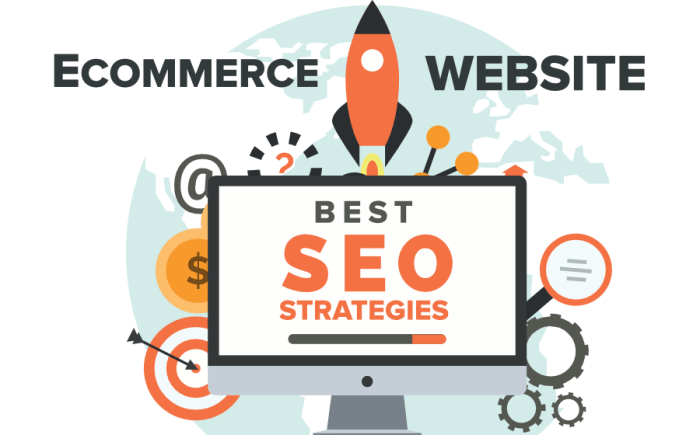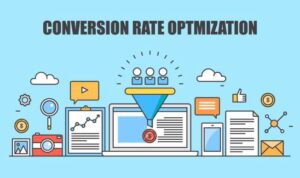SEO for E-commerce Websites – Kicking off with for E-commerce Websites, this opening paragraph is designed to captivate and engage the readers, setting the tone with a high school hip style that unfolds with each word. Dive into the world of strategies tailored for e-commerce platforms, where every click counts towards maximizing online sales and visibility.
From the importance of to on-page techniques and off-page strategies, this guide will equip you with the knowledge to dominate the digital marketplace. Let’s explore the dynamic realm of for E-commerce Websites together.
Importance of for E-commerce Websites

is like the secret sauce for e-commerce websites, making them more visible to potential customers and helping them stand out in the crowded online marketplace. Without , your website could get lost in the vast sea of competitors, missing out on valuable sales opportunities.
When it comes to online sales, can have a huge impact on your bottom line. By optimizing your website for search engines, you can increase your visibility in search results, drive more organic traffic to your site, and ultimately boost your sales. For example, a well-executed strategy can help you rank higher in search engine results pages (SERPs), making it easier for customers to find and purchase your products.
Implementing strategies for e-commerce platforms comes with a plethora of benefits. Not only does it improve your website’s search engine rankings, but it also enhances user experience, increases brand credibility, and builds trust with potential customers. In addition, can help you target specific s related to your products, attract qualified leads, and ultimately drive more conversions.
Benefits of Implementing Strategies for E-commerce Platforms
- Increased online visibility and brand awareness
- Higher search engine rankings and organic traffic
- Improved user experience and website usability
- Targeted optimization for better targeting
- Enhanced credibility and trust with potential customers
On-Page Techniques for E-commerce Websites
When it comes to optimizing e-commerce websites for search engines, on-page techniques play a crucial role in improving visibility and driving organic traffic. By focusing on key factors specific to e-commerce sites and optimizing product pages effectively, you can enhance your site’s search engine ranking and attract more potential customers.
Key On-Page Factors for E-commerce Sites
- Optimization: Conduct thorough research to identify relevant s for your products and integrate them strategically into product titles, descriptions, and meta tags.
- Unique Product Descriptions: Craft unique and compelling product descriptions that not only inform customers but also help search engines understand the content of your pages.
- Optimized Product Images: Use descriptive file names and alt text for images to improve visibility in image search results and enhance overall .
- Internal Linking: Create a logical internal linking structure to guide both users and search engine crawlers through your site and improve indexation.
Optimizing Product Pages for Search Engines
- Title Tags: Include relevant s in product titles and ensure they accurately describe the product to attract both search engines and potential customers.
- Meta Descriptions: Write compelling meta descriptions that entice users to click through to your product pages while incorporating relevant s.
- URL Structure: Optimize product URLs by including relevant s and keeping them concise and descriptive for better search engine visibility.
- Structured Data Markup: Implement structured data markup such as schema.org to provide search engines with additional context about your products and enhance visibility in search results.
Importance of Using Unique Product Descriptions for , SEO for E-commerce Websites
When it comes to for e-commerce websites, using unique product descriptions is essential for several reasons:
- Differentiation: Unique product descriptions set your products apart from competitors and help you stand out in search results.
- Value: Search engines prioritize unique and valuable content, so unique product descriptions can improve your site’s visibility and ranking.
- Conversion Rate: Well-crafted product descriptions can influence purchasing decisions and improve conversion rates by providing detailed information to customers.
Off-Page Strategies for E-commerce Websites: SEO For E-commerce Websites

In the world of e-commerce, off-page strategies play a crucial role in improving the visibility and ranking of online stores. These strategies focus on building a strong online reputation and authority for the website through various external factors. Let’s dive into some key aspects of off-page for e-commerce sites.
Significance of Backlinks in E-commerce
Backlinks are like upvotes from other websites, signaling to search engines that your e-commerce site is a credible and valuable resource. They act as a vote of confidence in your site’s content, which can positively impact your search engine rankings.
- Backlinks help search engines discover and index your site faster.
- High-quality backlinks from authoritative websites can significantly boost your site’s credibility.
- Backlinks can drive referral traffic to your e-commerce site, increasing the chances of conversions.
Methods to Acquire High-Quality Backlinks for E-commerce Sites
Acquiring high-quality backlinks requires a strategic approach to building relationships with other websites and creating valuable content that naturally attracts links. Here are some effective methods to acquire quality backlinks for your e-commerce site:
- Guest blogging on relevant industry websites.
- Creating shareable content that naturally attracts backlinks.
- Reaching out to influencers in your niche for collaborations and mentions.
- Participating in online communities and forums to establish your brand presence.
- Submitting your site to reputable online directories and listings.
Social Media Contribution to Off-Page for Online Stores
Social media platforms have become powerful tools for enhancing off-page for e-commerce websites. By leveraging social media effectively, online stores can expand their reach, engage with their target audience, and generate valuable backlinks. Here’s how social media can contribute to off-page :
- Sharing content on social media channels can increase brand visibility and attract organic backlinks.
- Engaging with users and influencers on social media can lead to valuable collaborations and mentions.
- Using social media to promote products and offers can drive traffic to your e-commerce site, improving its authority and relevance.
Technical Best Practices for E-commerce Websites
When it comes to technical for e-commerce websites, there are several key elements that should be focused on to improve search engine rankings and overall visibility.
Website Speed and Mobile-Friendliness
One of the most important technical aspects of for e-commerce websites is website speed. Search engines like Google prioritize websites that load quickly, as this provides a better user experience. Additionally, mobile-friendliness is crucial, as more and more users are browsing and shopping on their mobile devices. Ensuring that your e-commerce site is optimized for mobile users can have a significant impact on your search rankings.
- Optimize images and videos to reduce load times
- Use a content delivery network (CDN) to improve loading speeds
- Implement responsive design to ensure your site is mobile-friendly
- Regularly test your site’s speed and performance to identify areas for improvement
Optimizing Site Structure and Navigation
In order to make it easier for search engines to crawl and index your e-commerce website, it’s important to optimize your site structure and navigation. This can help search engines understand the context of your pages and improve overall visibility in search results.
- Create a clear and logical site structure with well-defined categories and subcategories
- Use internal linking to connect related pages and improve navigation for both users and search engines
- Include descriptive meta tags and optimize URLs for better search engine visibility
- Ensure that your site is easily crawlable by search engine bots by fixing any technical issues like broken links or duplicate content





